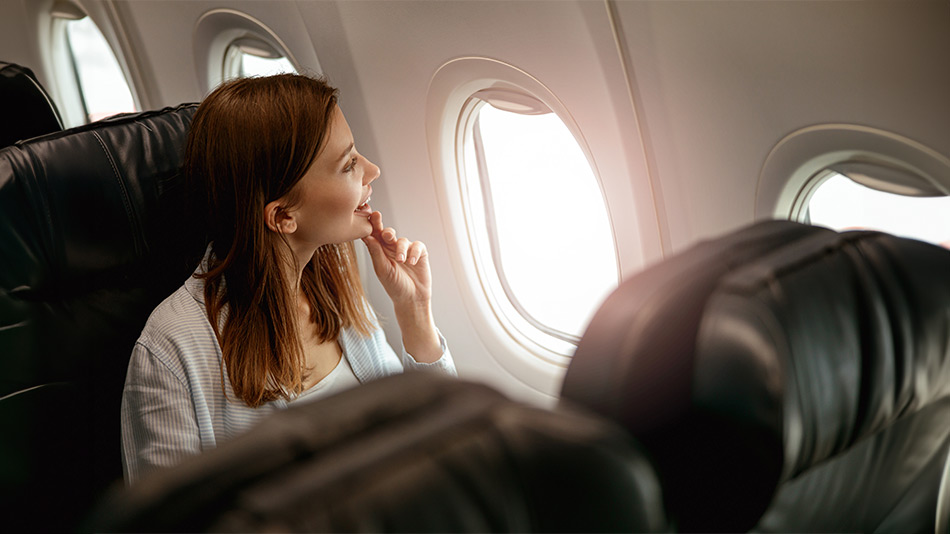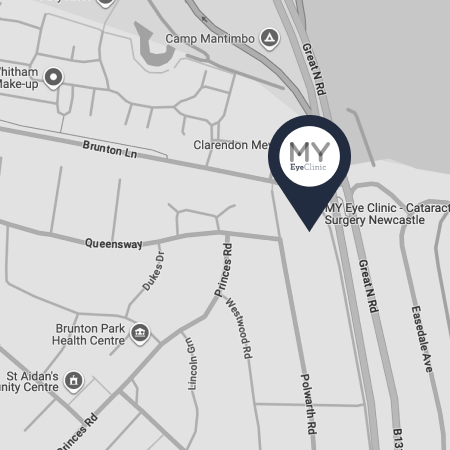
Can you fly after laser eye surgery?
If you have a trip coming up or you travel often, one question might be on your mind: “Can I fly after laser eye surgery?”
The short answer is yes, you can. But like everything in the recovery process, there are a few things to be aware of.
In this blog, we’ll walk you through:
- When it’s safe to fly after LASIK, LASEK, or TransPRK
- What to consider if you’re planning air travel soon after surgery
- How to protect your eyes while flying
Is flying after laser eye surgery safe?
Yes. Air travel itself does not harm your eyes after surgery. The change in air pressure during a flight does not affect the healing process, and the laser treatment won’t be undone by flying.
But timing matters.
When can I fly after laser eye surgery?
- LASIK: You can usually fly within 1–2 days. Vision stabilises quickly, and healing is fast.
- LASEK and TransPRK: Wait at least 5–7 days, as healing takes a bit longer.
We’ll advise you at your follow-up appointment if it’s safe to fly. Your eyes need to be stable enough to handle a drier environment and possible exposure to infection.
What should I be careful about?
Airplane cabins are dry. That can make your eyes feel irritated or uncomfortable, especially just after laser eye surgery.
To fly comfortably:
- Bring lubricating eye drops in your carry-on
- Stay hydrated by drinking water
- Avoid rubbing your eyes
- Wear sunglasses if you’re light-sensitive.
It’s also a good idea to rest your eyes during the flight, especially on long journeys.
What about flying internationally?
You can travel abroad after surgery, but keep these things in mind:
- Plan your follow-up care: We usually recommend a check-up within a week.
- Avoid swimming or hot tubs while abroad (especially in the first 2 weeks).
- Pack all your prescribed drops and aftercare instructions.
- Know where to find help if you experience any problems while away.
We recommend waiting at least a few days after surgery before travelling overseas.
What if I have to travel for work?
No problem. Many people return to work within a few days of LASIK. If you have to travel as part of your job, let us know in advance so we can schedule your surgery and follow-up care around your plans.
We’ll also make sure you have everything you need for a safe and comfortable trip.
Is there ever a reason not to fly?
Flying is generally safe after laser eye surgery, but we might recommend delaying if:
- You have signs of infection
- You haven’t healed enough to stop using your protective lens (LASEK/TransPRK)
- Your vision is still blurry and needs monitoring.
We’ll always give you personalised advice based on your healing.
How long should I wait before going swimming or snorkelling?
If your trip includes swimming, wait at least:
- 2 weeks for LASIK
- 3–4 weeks for LASEK/TransPRK.
Pools, hot tubs, and the sea can introduce bacteria that increase your risk of infection. Always wear sunglasses on sunny holidays, and avoid getting water in your eyes.
Travelling for your surgery?
Some people fly into Newcastle from other parts of the UK or abroad to have treatment at our clinic. We offer guidance for both locals and visitors, including support with logistics and accommodation if needed.
Ready to take the first step toward clearer vision? Take our free self-test to find out if you’re suitable for LASIK, LASEK or TransPRK.
Find out if you are suitable for vision correction
Vision correction isn’t suitable for everyone.
The first step is to take the self test so you can find out whether you can benefit.




